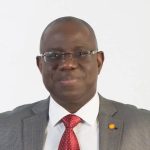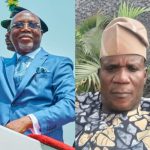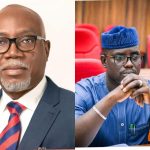
…..SMP tasks INEC, EFCC on prosecution of offenders.
A pro-democracy group, known as the Social Mobilisation Project (SMP), has lamented that votes trading in recent elections in Nigeria is responsible for current bad governance being experienced by the citizens.
SMP which has university scholars as members and leaders, therefore challenged the anti-graft agency, Economic and Financial Crimes Commission(EFCC) and the Independent National Electoral Commission(INEC) to be more proactive in implementing the sections of the Electrical Act and other laws that criminaliss vote-buying.
Speaking with newsmen at the Press Centre of the Nigeria Union of Journalists(NUJ) Ondo State Council on Tuesday in Akure, the SMP Convener, Prof. Akin Fashoranbaku explained that prosecuting offenders would check the chances of fraudulent people getting into political offices that could subsequently lead to bad governance.
Fashoranbaku, said 3e the menace of vote-buying had undermined democratic governance in the country as people without vision bought their ways into power.
He said the group has discovered that dividends of democracy are being delivered to a few people rather than to all in the country.
The don spoke on the signs of sensitization of the people on the manifestos of all the political parties before the election so that they could vote for the appropriate candidate with the best programmes.
He said: “Vote buying seems to have become the norm of the day both at the primary and general elections. According to the Civil Society Situation Room (2019), it is a cynical tactic that seeks to take advantage of widespread poverty and want by getting people to sell their votes to the highest bidder.
“The Independent National Electoral Commission (INEC) and the Economic and Financial Crimes Commission (EFCC) should develop a strategic collaborative framework for effective monitoring of political parties’ campaign funds in order to effectively curb electoral fraud, including vote-buying.
“Vote buying promotes elitist politics and weakens popular participation. Only persons with resources get access to political offices in Nigeria.
“Communities with grassroots solidarities hardly have access to political power because of their inability to participate actively in the monetized political system.
“The political parties that bought votes monopolized power to the exclusion of
financially weak parties. They become new sets of autocrats in the political process.
“Political institutions (parliaments and government houses in Nigeria, for instance) are currently inhabited by some politicians with stolen mandates via vote-buying.
“This has affected the image and respects for such national institutions, which are supposed to direct the course of democracy.
“Vote buying unduly raises the cost of elections, thereby shutting out contestants with little finances and promoting political corruption.
“When victory is purchased rather than won fairly, it obviously leads to State capture. What happens after State capture can best be imagined.
“This implies that vote buying can trigger corruption by politicians after
manipulating themselves into power. This is because they would want to recoup the money expended during the electioneering process. This can lead to the abuse of state resources.
“Vote buying equally compromises the credibility, legitimacy, and integrity of elections. It undermines the integrity of elections as the winners are often the highest bidders and not necessarily the most popular or credible contestants (Adamu, Ocheni & Ibrahim, 2016).
“Vote buying definitely has major negative implications for the electoral system and the political system as a whole. It therefore discourages conscientious people from participating in electoral politics, causes citizens to lose faith in State institutions, and leads to political and voter apathy.
“Vote trading equally has the tendency to perpetuate bad governance. It not only compromises the well-being of those who sold their vote for instant gratification but also the future of those who did not sell their votes but are inevitably exposed to bad governance that results from such a fraudulent process.
“For every vote traded, there are many people who would suffer the unintended consequences when the traded votes make the difference between winning and losing in the election. Put differently, vote-buying vitiates the commitment of the “elected” government to the ideal of good governance like accountability, inclusiveness, and responsiveness. Vote buying compromises the credibility, legitimacy, and integrity of elections.
“Lastly, vote buying may be said to be responsible for the country’s underdevelopment because political leaders that emerge through vote buying most often do not have the interest of the country at heart.
“Hence, they hardly initiate or promote programmes or policies that will stimulate the development of the country; rather, they promote policies that will give them more access to the resources of the country.”
SMP is a pro-democracy movement whose membership consists of activists within and outside Nigeria and whose main goal is to effect a change in the present social order where the masses will be in charge of their affairs.
The group is meant to mobilise the masses for a profound change in the present socio-economic order.
The lecturers also is focusing on organising the masses towards emancipation from political oppression and economic exploitation.
Also they focus on mobilising the masses to resist injustice and bad governance at all levels.










